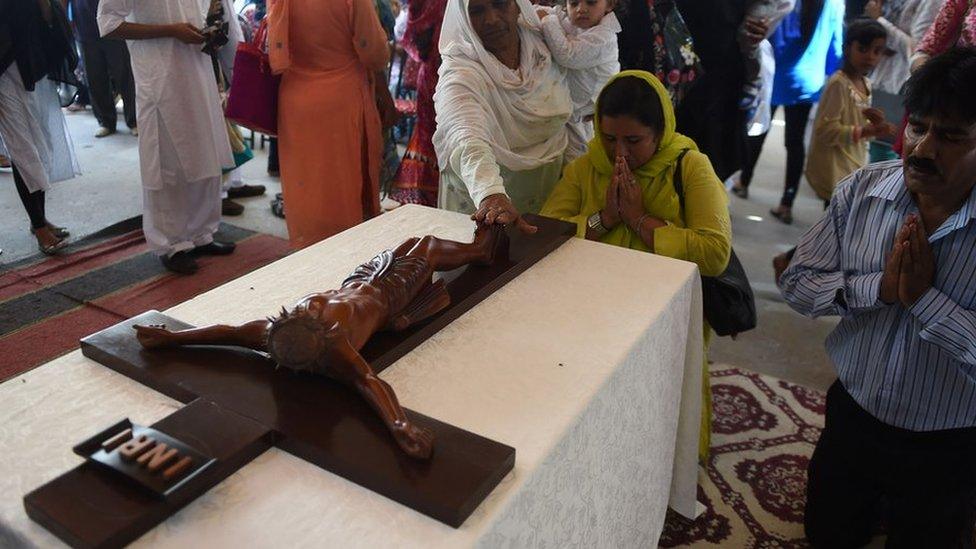Pakistan blasphemy case: Supporters of hard-line cleric detained
- Published
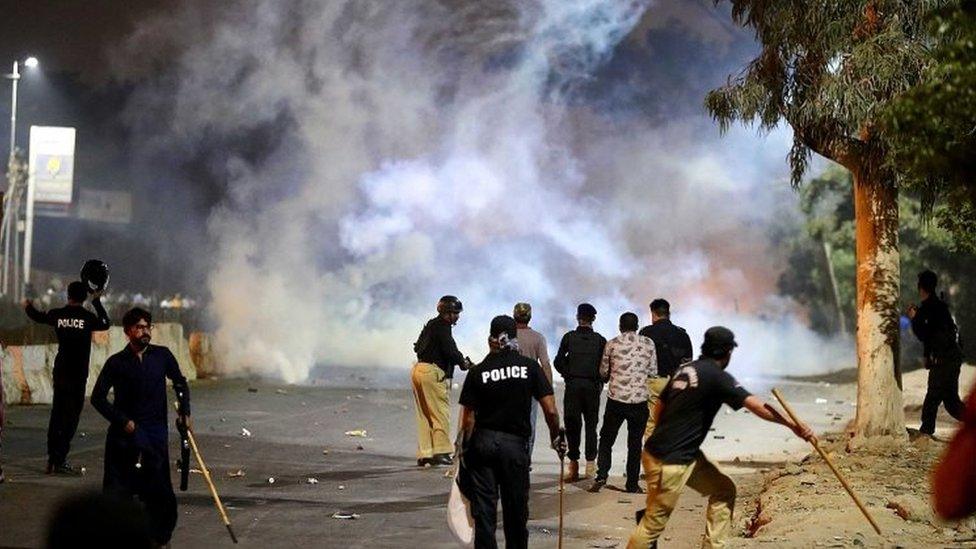
Police used tear gas to disperse supporters of cleric Khadim Hussain Rizvi after his arrest
Pakistan's authorities have held dozens of supporters of a hard-line Islamic cleric whose party led mass protests last month over the acquittal of a Christian woman accused of blasphemy.
Officials say they acted to maintain public order after leaders of the Tehreek-e-Labaik (TLP) party refused to call off protests planned for Sunday.
The cleric, Khadim Hussain Rizvi, was himself detained on Friday.
The woman, Asia Bibi, is now in hiding because of threats to her life.
She was convicted in 2010 of insulting the Prophet Muhammad but was acquitted in October, a ruling that angered many.
What's the latest on the arrests?
They were made mainly in Pakistan's central Punjab province.
Officials say the arrests were necessary to avoid any "backlash" following the arrest of Khadim Hussain Rizvi.
Punjab Information Minister Fayyaz ul-Hassan Chohan said police had been deployed in all major cities of the province.
"There is a complete ban on all types of political gatherings in the province," he said.
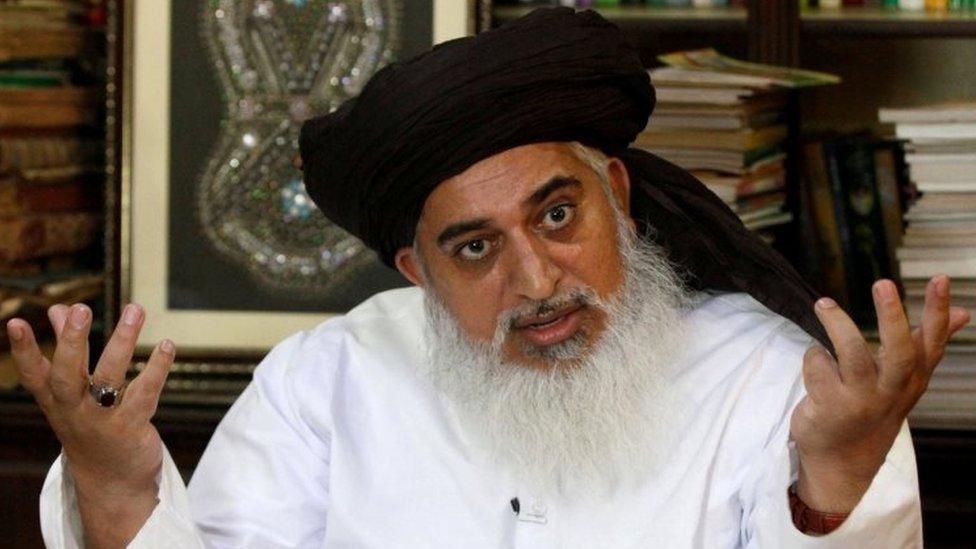
Khadim Hussain Rizvi's party led mass protests last month
Mr Rizvi - who the authorities say was taken into "protective custody" - had called on his supporters to hold street protests if he were arrested.
In October, his party virtually paralysed Pakistan with mass protests that at times were violent.
The government and the TLP later struck a deal to end the protests.
It was agreed that legal proceedings would begin to place Asia Bibi on a list that would ban her from leaving Pakistan. The government also said it would not block a review petition filed against the court ruling.
However, the TLP later pledged to resume the protest if Asia Bibi were allowed to leave Pakistan.
What was Asia Bibi accused of?
The trial stems from an argument she had with a group of women in June 2009.
Asia Bibi's escape from Pakistan death row
They were harvesting fruit when a row broke out about a bucket of water. The women said that because she had used a cup, they could no longer touch it, as her faith had made it unclean.
Prosecutors alleged that in the row that followed, the women said Asia Bibi should convert to Islam and that she made offensive comments about the Prophet Muhammad in response.
She was later beaten up at her home, with her accusers saying she had confessed to blasphemy. She was arrested after a police investigation.
Acquitting her, the Supreme Court said that the case was based on unreliable evidence and her confession was delivered in front of a crowd "threatening to kill her".
Why is this case so divisive?
Islam is Pakistan's national religion and underpins its legal system. Public support for the strict blasphemy laws is strong.
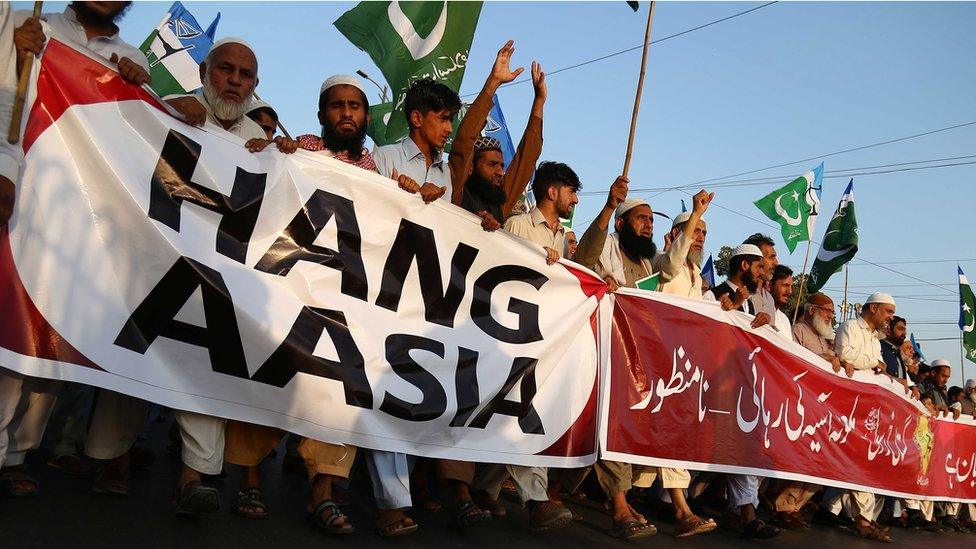
Asia Bibi's acquittal sparked protests by Islamists
Hard-line politicians have often backed severe punishments, partly as a way of shoring up their support base.
But critics say the laws have often been used to exact revenge after personal disputes, and that convictions are based on thin evidence.
The vast majority of those convicted are Muslims or members of the Ahmadi community who identify themselves as Muslims but are regarded as heretical by orthodox Islam. Since the 1990s scores of Christians have also been convicted. They make up just 1.6% of the population.
The Christian community has been targeted by numerous attacks in recent years, leaving many feeling vulnerable to a climate of intolerance.
Since 1990, at least 65 people have reportedly been killed in Pakistan over claims of blasphemy.
- Published31 October 2018
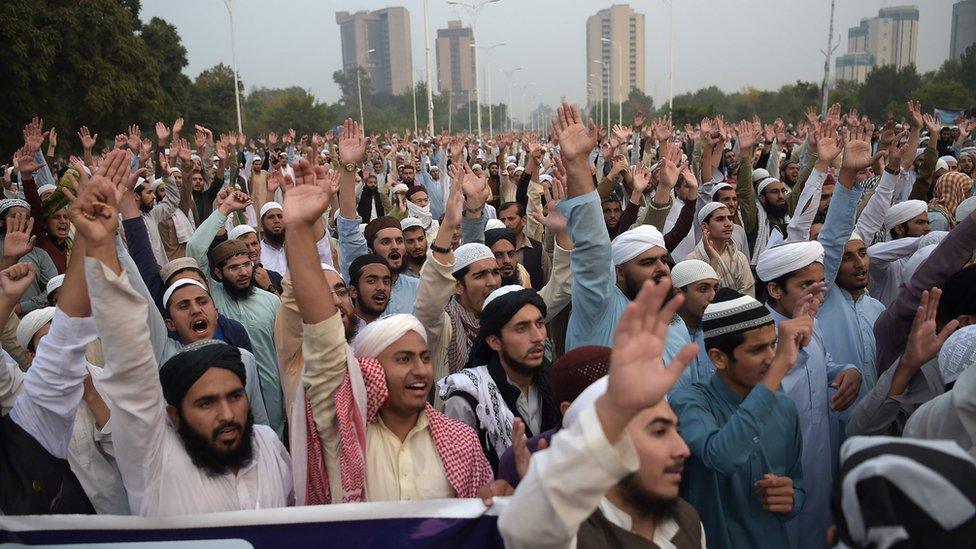
- Published30 October 2018
